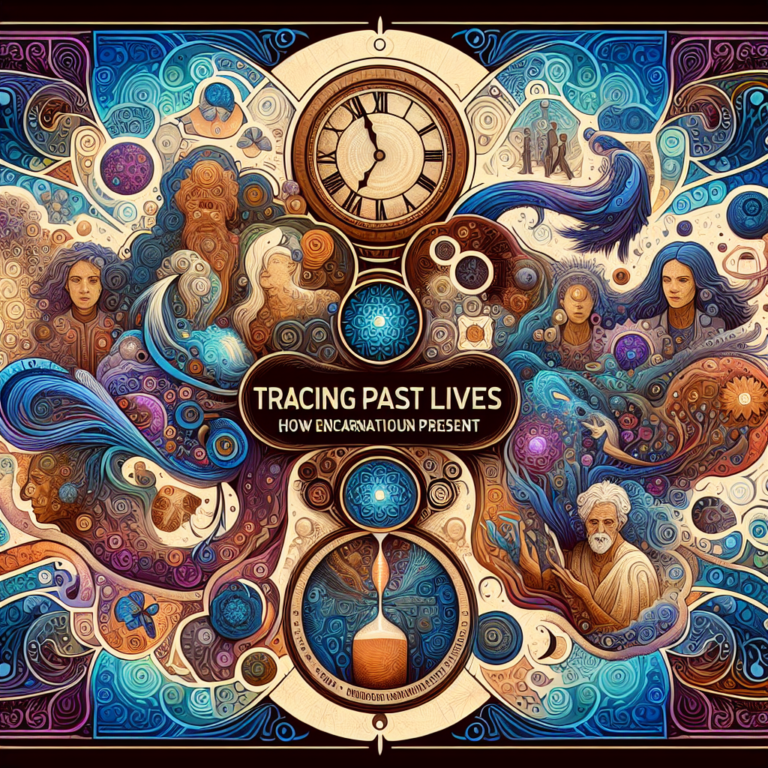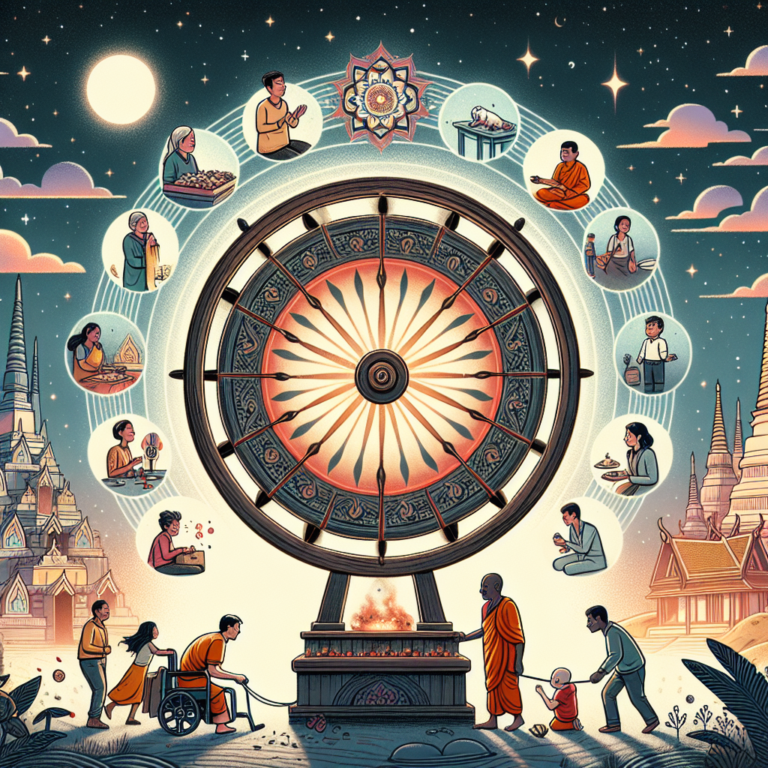Karma is a concept rooted in various spiritual traditions and philosophies, most notably within Hinduism and Buddhism. It denotes the principle of cause and effect, where every action has a corresponding reaction. Practitioners often view karma as a long-term cosmic justice system that impacts an individual’s fate based on their thoughts, words, and deeds. However, the idea of "instant karma" propels this concept into daily life, suggesting that the universe has an uncanny ability to deliver swift consequences for one’s actions. This article explores the fascinating phenomenon of instant karma, how it manifests, and its implications for human behavior and social ethics.
Understanding Karma
To grasp the notion of instant karma, it’s essential to understand traditional karma. It operates on the belief that actions have consequences, and that good deeds yield positive results, while negative actions invite adverse repercussions. This can play out over lifetimes, influencing one’s current situation based on past actions. So, when people refer to "instant karma," they highlight situations where the effects of one’s actions occur remarkably quickly — almost as if the universe is quick to respond.
The Principle of Instant Karma
The term "instant karma" was popularized by the late musician John Lennon in his song "Instant Karma! (We All Shine On)." In it, he encapsulates a sense of urgency regarding the moral responsibilities of individuals, stressing that what one puts into the world will inevitably come back, sometimes almost immediately. This captures a significant moral lesson: that the energies we emit have the power to create real-time consequences in our lives.
While instant karma can manifest in humorous or poetic ways, it serves a higher purpose — to alert individuals to the power of their choices and the interconnectedness of all beings. It reminds us that our actions impact others, and in a world driven by negativity, the prompt retribution of bad deeds can serve as a cosmic deterrent.
How Instant Karma Manifests
Experiencing instant karma can happen in various forms, often bringing about immediate, sometimes ironic, consequences. Here are a few examples:
Public Behavior: A person who cuts off another driver may, moments later, find themselves blocked by traffic or encountering obstacles that prevent their progress — a tangible manifestation of their unkindness.
Deceit and Dishonesty: Someone who lies or cheats for personal gain may find themselves facing consequences swiftly, such as being called out or losing credibility among peers.
Kindness and Generosity: Conversely, acts of kindness can also result in instant karma. Helping a stranger might bring unexpected joy or assistance back to you when you least expect it.
Social Media Backlash: In today’s digital age, actions online can lead to immediate and substantial repercussions. An offensive post may result in public outrage almost instantly, prompting the person to face the fallout.
- Health and Wellness: Ignoring personal health may yield immediate negative effects, such as fatigue or illness. The body’s feedback serves as a rapid response to one’s lifestyle choices.
The Psychological Aspect of Instant Karma
The idea of instant karma can motivate individuals to alter their behavior for fear of immediate consequences. The notion that one’s actions will lead to swift results can instill in people a greater sense of responsibility. When individuals recognize the potential for rapid consequences, it can foster mindfulness and encourage a more ethical approach to decision-making.
Moreover, the phenomenon reinforces a sense of justice. Observing someone who has wronged another suffer consequences almost instantaneously can provide a sense of satisfaction. This notion of poetic justice not only ensures that individuals adhere to ethical practices in their own lives but reinforces social norms and community values.
Instant Karma vs. Delayed Karma
While both instant and delayed karma are rooted in the same principle of morality and cause-and-effect, they differ primarily in timing. Instant karma serves as an immediate feedback system that stratifies actions and their consequences in real-time, while delayed karma can span across lifetimes, reflecting long-term and often transformative consequences for one’s deeds.
Understanding the differences helps individuals process events more profoundly and can engender patience. Waiting for delayed karma can engender a sense of trust in the universe’s timing, while instant karma can stimulate more immediate behavioral adjustments.
The Role of Intention
Intention is a fundamental aspect of karma. It is not merely the action but the motive behind it that influences the nature of the karmic return. Good intentions behind one’s actions help cultivate positive outcomes, suggesting that individuals should strive to cultivate mindfulness in their decision-making processes.
For instance, if someone acts out of genuine kindness, even if the immediate outcome isn’t favorable (like helping someone who doesn’t appreciate the effort), the positive intention behind the action still contributes to one’s overall karmic balance.
Conclusion
Instant karma highlights the universe’s intricate balance between actions and outcomes. It embodies the wisdom that we are all interconnected and that our actions directly influence not only our lives but the lives of those around us. By cultivating awareness of how our choices affect others, we can foster a more compassionate society.
In moments of apparent cosmic retribution, let us remember that the essence of instant karma should encourage growth, reflection, and responsibility. Whether it leads to immediate joy or swift justice, it serves as a powerful reminder that we are all players in a grand cosmic play that responds in kind to the energy we emit.
FAQs about Instant Karma
Q: Is instant karma a real phenomenon or just a coincidence?
A: While many people attribute examples of instant karma to mere coincidence, countless anecdotal instances lend credibility to the idea that the universe balances actions swiftly. The significant lessons behind these happenings are fundamentally rooted in the importance of kindness and accountability.
Q: Can instant karma apply to positive actions as well?
A: Absolutely! Instant karma is not just about negative actions. Good deeds can also return positives swiftly, reinforcing the cycle of positivity in a person’s life.
Q: How can I cultivate a sense of instant karma in my life?
A: Focus on being mindful about your actions and intentions. Regularly practice kindness, empathy, and accountability in your everyday interactions, and be attentive to the consequences of your actions.
Q: Is it possible to escape negative instant karma?
A: While one may feel they’ve evaded consequences temporarily, the karmic principle suggests that all actions eventually yield results. Mindfulness and efforts to rectify wrongs can help mitigate the negative ripples of past actions.
Q: How does instant karma relate to the law of attraction?
A: Both concepts emphasize the power of thought, intention, and action. Instant karma illustrates the direct repercussions of one’s choices, while the law of attraction focuses on the belief that positive thoughts attract positive experiences.
Understanding the delicate balance of karma, both instant and delayed, can empower us to craft a better life and contribute positively to the world around us.
It seems like you might be looking for a specific type of prompt or topic to explore. Could you please provide more details or specify what kind of prompt you’re interested in? Whether it’s writing, drawing, brainstorming, or something else, I’d be happy to help!, #Instant #Karma #Universe #Rightly #Balances #Scales, #Instant #Karma #Universe #Rightly #Balances #Scales, 1734569533, instant-karma-when-the-universe-rightly-balances-the-scales





